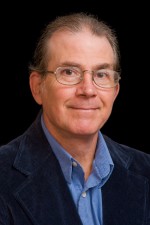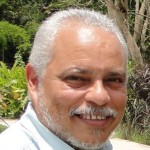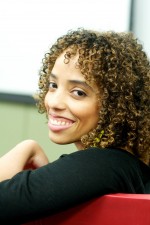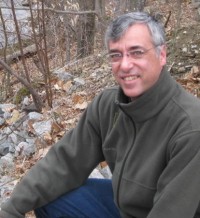
The following interview is shared with you by both Chris Mercogliano and Isaac Graves. To learn about this interview series and reproduction, citation, and copyright information, please click here. To find out more about Chris Mercogliano and his work, click here.
 Isaac Graves: What does community mean to you?
Isaac Graves: What does community mean to you?
Chris Mercogliano: I operate with a pretty strict definition because the word gets misused so much, in so many euphemistic ways. To me, the essential quality of community is that the members of the community are very closely connected to each other on a deeper emotional level beneath the superficial level. Those people—the members of the community—they trust each other. There’s a high level of trust, a high level of communication, and a high level of cooperation. There’s a few other characteristics to flesh it out. Communities aren’t exclusive, they’re inclusive, so that the members accept each other’s differences. In-groups and cliques aren’t communities because they’re exclusive. A lot of groups that might say they’re a community, or use that word in some sort of euphemistic way, that cuts them out because those groups are actually exclusive. They’re completely wrapped up around a certain piece or something. And you can see how that’s really important if you’re going to talk about—I assume you’re talking schools and education. So when we talk about schools being communities, in order for a school to be worth anything, to be a good place for kids and so on, it’s got to be a community in my book. It’s one of the most important attributes of any school, and so then all those characteristics that I’m checking off that have been really important—the exclusive part you see becomes important. In the strict sense, I would challenge some private school that wants to say: “Well we’re a community. We all trust each other, and we’re close.” But I would say, “Yeah, but you’re really exclusive.” Every private boarding school tries to make itself a community, which is good, the kids live there, it’s home, it should be a nourishing, supportive place. But if I was going to be picky with my definition, I’d say, “Yeah, but you’re too exclusive to be a community. I’m sorry.” Communities aren’t exclusive. And I just don’t think schools should be exclusive, so there it is.
IG: How does community play out in your life?
CM: In my personal life, it could play out a lot more. But what used to be our Free School community doesn’t really exist anymore… I miss that actually. Maybe this is too much information for you, but I still feel that those of us that have been here a long time have a community and we operate as a community, which is good. But there isn’t the dynamism there was when there were so many people of different ages. You know, we’re a pretty homogenous group—we’re all white, we’re all the same age, there’re no children anymore. When the Free School community was thriving, it just had a lot of diversity—not so much racial, but there was a little racial diversity—but certainly an age diversity and all kinds and types of different thinking. Us old timers here, we’re pretty homogeneous in the way we think and kind of the way we live. There’s nothing wrong with that—but you see in my definition of community it doesn’t quite fit.
And then that’s changed, even for us old guys. We don’t work together as much either. We’re much more living our separate lives, than we used to when we were involved with the school. Then, we were working together a lot and we had a big common task that held us together, and that’s changed because we’ve gotten older. We’re not involved with the school anymore directly, everyday. I miss that. You know when the Free School community was really working well, it was just a really cool place to live, really wonderful way to live. You live amongst people where you’re honest with each other, you trust each other, you know you’re not going to be excluded, and you know more or less that you’re going to be accepted. If you act like an asshole somebody’s going to tell you, “You’re being an asshole.” People just looking out for each other and sharing and supporting each other on all kinds of levels—supporting each other with parenting, supporting each other with projects, working on each other’s houses, just that level of cooperation. It’s just a sweet, lovely way to live. You feel very connected to others, and I don’t know why anybody wouldn’t want to live that way. It makes the fabric of your life richer, and it’s also easier. There’s just a lot of support, you don’t so much have to slug it out yourself in the typical American fashion with all of us being rugged individualists.
You always know you have help if you need it. You don’t have to do it yourself. You don’t have to do it the hard way. Just right around the corner, right next door, “I don’t have to move this thing by myself,” or “I don’t have to fix this thing by myself.” Or, if you don’t know fix something, “Oh I just can go next door, Howie will know, Mike will know—Frank will know. I just got to go see Frank. He’ll practically drop what he’s doing and come and help me fix x, y, or z.” Or if you have a legal question or problem, “I can just call Larry. It’s not a professional thing. He’s part of my community, so he’ll help me figure out this mess.”
It just makes life a lot easier – tremendously. You don’t need as much money, there are practical levels to it. That’s partly what made it work here. Mary’s secret to keeping the Free School in business was we actually always spend as much money as was coming in. You didn’t set a salary first, you didn’t set a budget first and then, “Ok, now well hopefully we’ll get that much money.” We said, “How much money do we have? Ok, well we’ll divide that by 7 and that’s the salary. So we’re all going to get $150 a week right now because that’s how much money there is.” Obviously, it was never enough money. The Free School salaries have always been a joke. No one else has ever run the school for so long, paying teachers so little, but that’s where the community came in partly. You didn’t need as much money because you didn’t need to pay lawyers and doctors and nurses and babysitters. There was so much stuff that we could handle ourselves—stuff that you would ordinarily pay money for. You didn’t have to go to the movies, you could just get together with 5 other people and whatever watch a video together or sing songs, generate your own entertainment. It was practical.
IG: What do you find most meaningful about community?
CM: The most important piece is feeling connected to others. Or at least for me, it’s very important. I don’t like feeling isolated, particularly. Not that I don’t like being alone or doing stuff on my own, I’m very independent, but at the same time, that’s what kills people in this country – loneliness. That’s the leading cause of death. Of course it’s not loneliness itself that does that. There’s a pretty famous cardiologist had made the statement that loneliness doesn’t cause a heart attack, but if you look into people’s backgrounds and who are having heart trouble, very often you’ll find they are lonely. It’s connected. Then the physical body, immune system, everything suffers as a result.
That’s a frequent condition in our country, especially with nursing homes and families busted up and spread apart. You end up with older people very often feeling isolated and really being not just feeling. They’re feeling it because they are isolated! They’re not part of a community—they’re just living off in their senior citizen apartment, their families live a thousand miles away, and they’re lonely. They don’t feel connected and it has a huge impact on health.
IG: What's missing in community?
CM: I can tell you what I miss from the old Free School community. The weird thing for me now is all the Free School people all live here. They’re all over the neighborhood, they’ve taken over the neighborhood. There’s probably between 50 and 100 people now that are all “Free School people” and they own houses. And I don’t feel particularly connected to them, so that’s weird. It’s sort of like living in the suburbs where you say, “Hi, how are you?” but there’s no intimacy. There’s no real connection, it’s just superficial. So, it’s weird. There’s only ten of us—the people I say are part of my community. That’s not that many. There’s a lot more people that live all around this neighborhood that I formerly felt more connected too. A lot of that turned out to be an illusion on my part. I just don’t like that disconnected feeling.
But I think the younger people still think there’s a community. I think they still use the term “Free School Community.” I think I hear it once in a while. But I think it’s more at that superficial level now. I don’t get the sense there’s a lot of real close connection there.
IG: What is an ideal community to you?
CM: I don’t think there’s any such thing as that. That’s an important thing to understand about a real community – things are going to go wrong, people are going to piss each other off, people are going to do stupid things, there’s going to be conflict. That’s when people get close enough to each other. That’s inevitable—people are going to hurt each other’s feelings. I’m glad you asked that question. I think that’s part of the fantasy of community is it’s perfect, everyone gets along, and however else your fantasy runs itself or plays out. And that’s a trap. If that’s what your actual interpretation is, then how long is that going to last? Remember there were all these utopian communities back in the 1800s.
It was a big fad there for awhile in the late 1800s. They all crashed and burned because these people had this ridiculous idea that it was all going to be just wonderful. Then they couldn’t get along, and they didn’t know what to do when they couldn’t get along with each other. So, there’s no ideal other than maybe you could say that the ideal is that when things do go wrong, when there is conflict, and people hurt each other’s feelings; people are honest about it and they agree to work it out. Like a marriage, they agree to just hang in there and try to resolve the conflict so that the relationship will continue and go to a deeper, more trusting level. M. Scott Peck, was a psychologist for a long, long time and a pretty cool guy—he wrote a whole book about community called The Different Drum. One of the thing’s he is careful to point out is that conflict is a very important part. You can’t have community without conflict. It doesn’t even work if you just try to avoid having conflict, then people will never get close to each other. The magic of conflict, when you deal with conflict in the right way and don’t deny it, it actually brings people closer. Mary understood that at the Free School—that’s why we had council meetings.
Mary really understood that you had to just sort of hash it out in the moment if kids were mad. She understood when you do have conflict and everybody get involved in it, everybody gets a little dirty when somebody’s stealing something or kids are fighting, or whatever crazy shit might go on. That’s the glue, that’s what brings people closer – going through that process together, and being honest and being emotional. Let everybody see how mad you were when Jimmy was picking on you, how you really want to kill him actually, instead of the judicial council thing, “Well, we have written up that says that Jimmy’s picking on Johnny again. Well see, that rule 77… no, no we don’t allow that. Picking on each other’s not ok. And now Jimmy, here’s the punishment. Here’s the consequence for picking on. Next! Next case!” There’s no intimacy there, no connection—there’s no feeling. That’s why Mary didn’t do it that way.
IG: What does a democratic education mean to you?
CM: Not much. I’m not crazy about the term, but it’s bland. I understand it has an important function, because I personally think in the spirit of community, in the spirit of togetherness, when we’re talking about education and different kinds of schools. It’s important for schools to get together, work together, cooperate, form a movement—got all the strengths of community. It’s a good thing to do. I think there should be as much diversity as possible, again. If you’re going to have a strong education movement, then you’ve got to somehow be able to bring together schools of different kinds, schools with different flavors, different philosophies, different approaches, and yet establish enough common ground that they can work together, represent each other. So you have to have a label—an inclusive banner that you can all wave together. So, “democratic education” is a nice bland banner, a nice bland label that has enough vagueness to it that it allows for different kinds of schools to all call themselves “democratic schools”. What does it mean to me? I don’t know. It means to me that the students participate in the governance of the school, and I think that’s great. That’s the way schools should be. Kids should have a voice. I’m just not crazy about the political-ness of the term, that’s all. I don’t think you can get away from the political connotations any which way you cut it, and I think schools are just more than that. Then, I’ve already put my bias out there—I think one of the most important qualities for any school is community. I would choose “community schools” or something if I was going to come up with a label. But, that’s not going to sell—that’s going to be too exclusive a term.
IG: How does education play out in your life?
CM: I still teach a little bit. I teach a little math over at Harriet Tubman and a little math at the Free School. I’m on the advisory board at Harriet Tubman. So I’m involved, just trying to support the school and help it establish itself. And I’m on the board at the Free School, so same thing there, trying to help them keep it together. And I’m writing a book about education, so that’s pretty much what I write about.
IG: What do you find most meaningful about education?
CM: I think the thing I still love the most is really being able to help a child get it—whatever it might happen to be, depending on the context of the situation. If it’s long multiplication or algebra, I just love that feeling as a teacher, just to be there when the student gets it like, “Oh, I get it!” It’s totally vicarious, but it’s just like I can say, “I helped him get it, or I helped her get it. That’s great! Oh good, you got it!”
Or it could be helping two kids work out their troubles with each other. That would be getting it – helping them figure it out, sort it out, so that they don’t want to kill each other anymore and they’re friends again. It’s like, “Wow, look at that! I helped them work that out! Now they’re friends again. Alright!” It’s that sense of satisfaction and seeing kids. Right alongside that, there’s a great pleasure in seeing kids thriving, being happy, doing their thing. I get tremendous personal satisfaction from that. To be close to that, that’s what you’re doing when you’re teaching.
IG: What's missing in education?
CM: That’s where I think you then have to differentiate. When I’m over at Free School now, it looks pretty good. The kids are doing their thing, and it’s just beautiful to watch the kids doing their thing. But anyway, mainstream education—what do I want to change?
I think mainstream education is a disaster, and it’s just getting worse. It’s just completely headed in the wrong direction. At the same time, it’s so resistant to change. It’s just very difficult. As an institution, it resists change. It’s so good at resisting change, which is why it doesn’t change. It’s really got so many self-protecting mechanisms built in so that it won’t change in the ways that I think it needs to change. It’s very discouraging.
At the same time, it’s very difficult to see schools like Harriet Tubman or the Free School the Village Free School or the Journey School or whatever, Brooklyn Free School, Manhattan Free School—schools that have established themselves outside of the mainstream and have established themselves as really good places for kids. These are places where kids really get what they need, really learn, really grow, or if they’re stuck and really not doing well when they show up, which is often the case, of course, they start figuring it out.
Places like that aren’t accepted. The mainstream does not accept them, doesn’t understand them, is frightened by them. Look at how mightily little schools like that have to struggle just to stay alive. And they don’t necessarily stay alive, they go out of existence because there isn’t even the minimalist amount of support enough just to keep their doors open. That’s tough. Beyond that, Harriet Tubman should have 100 kids. Look at all the kids in the capital district that could benefit from a school like that. Yet, because the mainstream considers a school like Harriet Tubman so unacceptable, the school just sort of stays invisible. Other kids don’t even ever get a chance to go there. They’re never going to hear about it. they’re never even know that option exists for them.
IG: What is an ideal education to you?
CM: Well, sure it’s ok to talk about ideals. Ideals are ideals—no harm in that. Especially if we’re talking about children opposed to college students or highschoolers even. If they go to school, and they’re not home schooled, their schools are communities that fit all the characteristics that I already talked about. Then it’s really rich in experience and other people and children are directing the process. That’s a key piece for me because I totally believe that children are capable of directing their own education and it works better when they do. It’s going to be a lot more effective, relevant, and meaningful when they do. So, how’s that for an ideal?
IG: What do you think people should know about the relationship between community and education?
CM: I’ll just stress again that I think community is an essential ingredient. I think we should look at education holistically. I think if we define education as just the training of the mind, it’s just about the brain and the mind and about rational intelligence, information. But that’s a really narrow definition of education. It certainly doesn’t address a wide range of children’s developmental needs. The kinds of learning that are important, especially to children, need that rich context of relationships and other people. It’s a critical ingredient.
Kids learn from other people. Kids learn so much of what’s important within the context of relationships with other people. It’s important for children to feel connected and to feel nurtured, especially if they’re in school and not at home with their parents or they’re not lucky kids who have this really cool connected family, family life that they can educate themselves within. Kids need to be in loving environments where they feel safe and accepted and validated and where they can learn about other people and how to get along with other people. There, they can learn about themselves in the context of other people. All that stuff’s so important, and you need a community for it.

 Isaac Graves: What does community mean to you?
Isaac Graves: What does community mean to you?


 Isaac Graves: What does community mean to you?
Isaac Graves: What does community mean to you?
 Isaac Graves:
Isaac Graves: Isaac Graves: What does community mean to you?
Isaac Graves: What does community mean to you?















